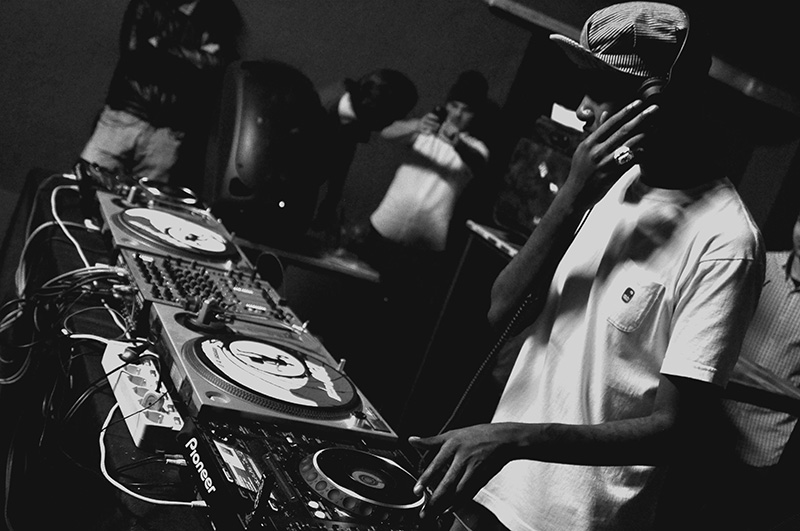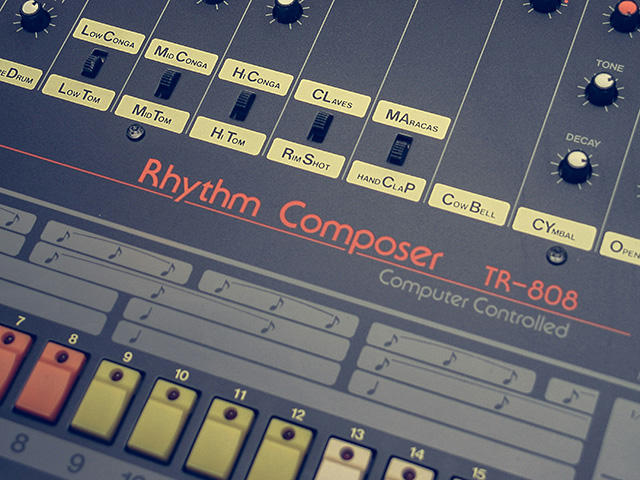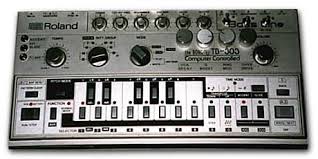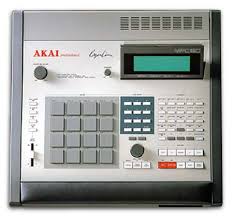House music is a dynamic and rhythmic genre characterized by its infectious beats, soulful vocals, and uplifting energy that keeps the dancefloor alive.
Subgenres of House
History of House Music
Famous House DJs / Producers
Famous House Audio Engineers
Production & Mixing Tips
Subgenres of House
Deep House
Known for its soulful and atmospheric sound, Deep House features complex melodies, warm basslines, and smooth vocals. It often creates a relaxed and introspective vibe.
Tech House
Combining elements of house and techno, Tech House is characterized by its groovy beats, driving basslines, and futuristic soundscapes. It blends the energy of techno with the soulfulness of house music.
Progressive House
With its focus on gradual progression and evolving melodies, Progressive House builds tension and creates a sense of anticipation. It often features long build-ups and melodic drops.
Electro House
A high-energy subgenre, Electro House combines elements of house and electro music. It is characterized by its heavy basslines, catchy melodies, and energetic drops.
Tropical House
Known for its laid-back and summery vibe, Tropical House incorporates tropical and Caribbean influences into its sound. It often features melodic chords, steel drums, and relaxed beats.
Afro House
Originating from Africa, Afro House blends traditional African rhythms and instruments with house music. It often incorporates tribal percussion, African vocals, and energetic grooves.
Bass House
Combining the heavy basslines of bass music with the rhythmic elements of house, Bass House is characterized by its powerful and distorted bass sound. It often features aggressive beats, catchy hooks, and intense drops.
History of House Music
House music originated in the vibrant and diverse city of Chicago in the early 1980s. It was born out of a fusion of various musical influences, including disco, funk, and electronic music. The genre got its name from the famous Chicago nightclub called “The Warehouse,” where the legendary DJ Frankie Knuckles played a pivotal role in shaping the sound and culture of house music. Knuckles and other DJs at The Warehouse began experimenting with drum machines, synthesizers, and electronic instruments to create a new and unique sound that blended the energy of disco with electronic beats. This new music became known as house music, named after the club that birthed it.
From its humble beginnings in Chicago, house music quickly spread across the United States and eventually gained global recognition. As it reached new cities and countries, house music evolved and embraced different regional influences, giving rise to various subgenres and styles. It became the soundtrack of underground clubs, where diverse communities came together to dance and celebrate the power of music. House music’s infectious beats, uplifting melodies, and soulful vocals resonated with people from all walks of life, transcending cultural boundaries and uniting them on the dancefloor.
Today, house music continues to thrive as a genre that represents freedom, expression, and the unifying power of music. Its influence can be heard in countless chart-topping hits and continues to inspire new generations of producers and DJs around the world.

The Gear That Shaped House


Roland TR-808
The Roland TR-808 drum machine is renowned for its distinctive analog sound and has played a significant role in shaping the rhythm and groove of house music. Its deep bass kicks, snappy snares, and crisp hi-hats have become iconic elements of the genre


Roland TB-303
The Roland TB-303 bass synthesizer is another legendary piece of gear that has had a profound impact on house music. Originally designed to simulate bass guitar, it was embraced by early house producers who discovered its unique squelchy sound and used it to create the signature acid house sound.


Akai MPC
The Akai MPC (Music Production Center) series of samplers and sequencers have been instrumental in the production of house music. These powerful machines allowed producers to sample and manipulate sounds, create intricate drum patterns, and arrange entire tracks, providing the backbone for many classic house productions.


Famous House DJs / Producers
The 1980s marked the birth of house music, and several DJs emerged as pioneers of the genre. Frankie Knuckles, known as the “Godfather of House Music,” played a pivotal role in shaping the sound of house music with his residency at The Warehouse in Chicago. Larry Levan, a resident DJ at the legendary Paradise Garage in New York City, also made significant contributions to the development of house music, blending disco, funk, and soul into his sets.
The 1990s saw house music explode globally, and DJs became superstars. Masters at Work, consisting of “Little” Louie Vega and Kenny “Dope” Gonzalez, gained recognition for their innovative productions and DJ sets that blended elements of house, Latin, and soul. Carl Cox, known for his energetic and dynamic mixing style, became a prominent figure in the UK rave scene and helped popularize techno-infused house music.
The 2000s witnessed a continued growth of house music, with DJs pushing boundaries and exploring new sounds. David Guetta emerged as a global phenomenon, fusing house with mainstream pop elements and achieving commercial success. Dutch DJs like Tiësto, Armin van Buuren, and Afrojack became leading figures in the electronic dance music (EDM) scene, incorporating house elements into their high-energy sets.
In the 2010s, house music reached new heights of popularity, and DJs continued to innovate and evolve the genre. Swedish House Mafia, comprised of Axwell, Steve Angello, and Sebastian Ingrosso, dominated the festival circuit and brought house music to the mainstream with hits like “Don’t You Worry Child.” Disclosure, a British duo, gained international recognition for their blend of house and garage music, while acts like Calvin Harris and Martin Garrix incorporated house elements into their chart-topping EDM productions.These are just a few examples of the most famous house DJs per decade, but there are countless other talented artists who have left their mark on the genre, shaping its evolution and ensuring its enduring popularity.
Three Sonic Qualities of House
Four-on-the-Floor Beat
House music is characterized by a repetitive four-on-the-floor beat, where a kick drum hits on every beat of the measure. This consistent rhythm provides a solid foundation for the music and creates a driving energy that is synonymous with the genre.
Tempo
House music typically has a tempo ranging from 120 to 130 beats per minute (BPM). This moderate tempo allows for a groove that is danceable and energetic without being too fast or too slow. The steady pace of house music sets the stage for the rhythmic and melodic elements to shine.
Basslines and Groove
House music often features deep, punchy basslines that provide a strong foundation and drive the track forward. These basslines are designed to be catchy, melodic, and dancefloor-friendly. Additionally, the use of syncopated rhythms and grooves adds a sense of swing and funkiness to the music, making it irresistible for dancing.
Famous House Audio Engineers
One of the most renowned house mixing engineers is Dave Pensado. With his extensive experience and expertise, Pensado has worked with numerous influential artists in the house music scene, consistently delivering mixes that are dynamic, balanced, and sonically powerful. His ability to bring out the best elements of each track, while maintaining the integrity and energy of the genre, has earned him a stellar reputation. From shaping the punchy drums to crafting the perfect balance between the bassline and the melodic elements, Pensado’s mixing skills have contributed to the success of countless iconic house tracks.
When it comes to mastering house music, few engineers are as revered as Bob Katz. With a career spanning several decades, Katz has mastered numerous seminal house tracks, showcasing his meticulous attention to detail and technical prowess. His mastering work emphasizes clarity, depth, and overall sonic impact, ensuring that the final product sounds polished and professional across various sound systems. Katz’s ability to enhance the dynamics and stereo image of house tracks while preserving the integrity of the original mix has made him a highly sought-after mastering engineer in the genre.
These two legendary audio engineers, both in the mixing and mastering realms, have played a significant role in shaping the sound and quality of house music, elevating it to new heights and leaving a lasting impact on the genre.


Three Mixing & Mastering Tips for House
Sidechain Compression
Sidechain compression is a popular technique in house music that creates a pumping effect by ducking certain elements, such as synths or bass, to make room for the kick drum to punch through the mix. This technique helps to enhance the rhythmic groove and drive of the track. By setting up sidechain compression, you can achieve a sonically pleasing pumping sound that adds energy to your house music.
Checking Levels and Stereo Field
Before finalizing your master, it’s important to check your mix for technical issues. Use metering plugins or tools like LEVELS to ensure that your mix doesn’t clip and has an appropriate level. Additionally, check the stereo field to ensure there are no phase problems and the mix is well-balanced. Pay attention to the dynamic range to avoid over-compression, which can result in a loss of dynamics and impact. These steps help ensure that your mix is technically sound and ready for the mastering stage.
Experimentation and Refinement
House music offers ample room for creativity and experimentation. Don’t be afraid to try different mixing techniques and sound design approaches to achieve the desired sonic qualities. Experiment with filters, automation, and parallel processing to shape the sound of synths, drums, and other elements. Aim for clarity, balance, and a cohesive mix. Continuously refine your skills through practice and learning from industry experts. Stay up-to-date with the latest trends, attend workshops, and engage with the house music community to enhance your mixing and mastering techniques.
Why Hire a Professional Audio Engineer or Producer for Mixing and Mastering House Music?
While it is possible to learn and do mixing and mastering house music yourself, hiring a professional can provide a level of expertise, objectivity, and efficiency that can greatly benefit your house music production.
Genre-specific Expertise
Professional audio engineers have extensive knowledge and experience in working with different genres of music, including house music. They understand the specific techniques and nuances that make house music sound its best.
Technical Skills
Mixing and mastering involve intricate technical processes, including EQing, compression, balancing levels, stereo imaging, and adding effects. Professional engineers have the technical skills and tools to enhance the clarity, depth, and overall quality of house music, ensuring it sounds professional and competitive.
Objective Opinion
After spending countless hours working on your recordings, it can be difficult to maintain objectivity. A professional audio engineer can provide a fresh and objective perspective on your mixes, identifying any imperfections and offering suggestions for improvement.
Access to Top-notch Equipment
Mastering an album requires specialized equipment and software. Professional audio engineers are trained to use these tools effectively, ensuring that your house music is mastered to perfection.
Time and Efficiency
Mixing and mastering can be time-consuming and require attention to detail. By hiring a professional, you can save time and focus on other aspects of your music career while knowing that your tracks are in capable hands. Professionals have streamlined workflows and efficient processes to deliver timely and high-quality results.